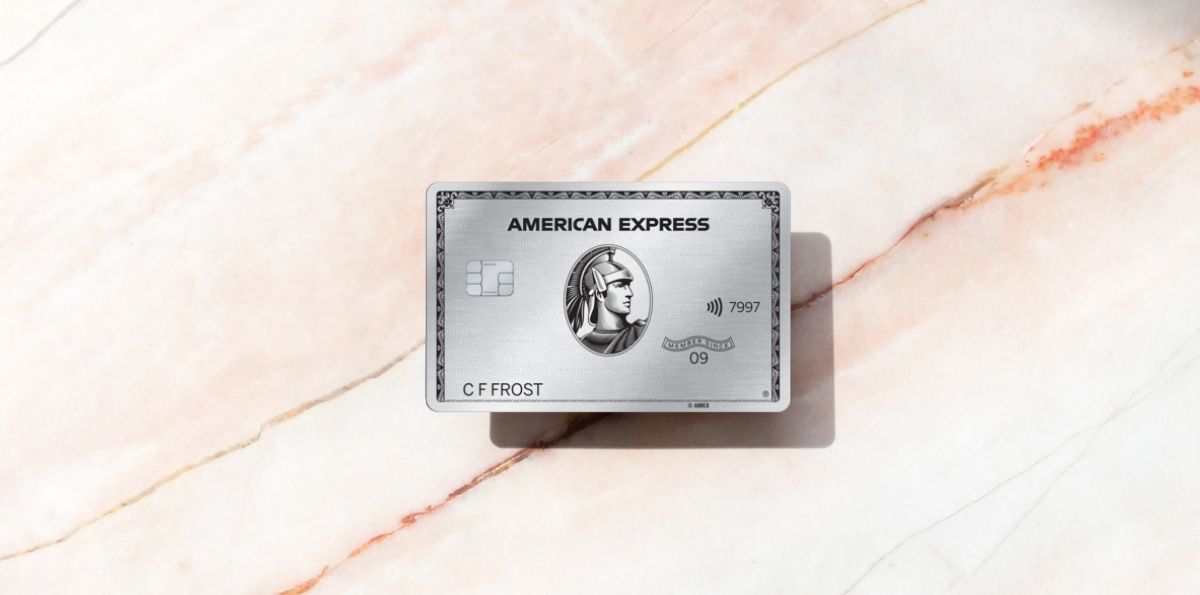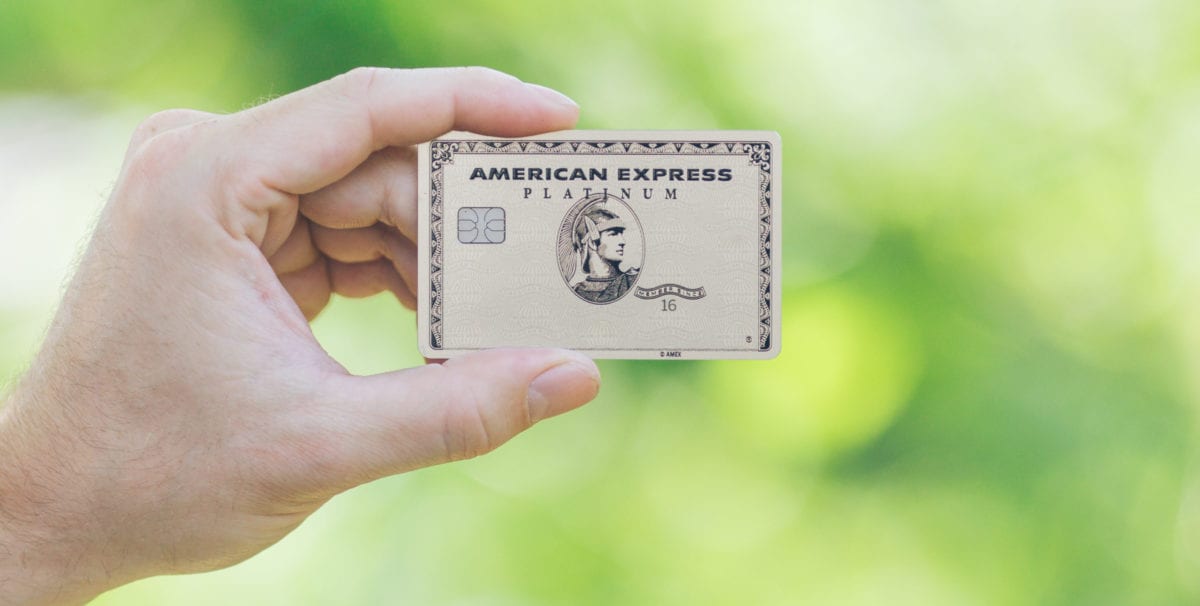Many travelers transferring their American Express points from cards like the *amex gold* or *amex platinum* to Delta or Hawaiian Airlines: “Wait, why the heck am I getting charged a fee to transfer my points?”
It's a shock to first-timers but (admittedly annoying) old hat to longtime points and miles aficionados. Sure, they're relatively small fees, only charged when sending to a trio of U.S.-based airlines – and capped at no more than $99.
Still, it begs the question: Why does Amex (and only Amex) charge us to transfer points at all?
It's all thanks to an arcane law passed in the late '90s as frequent flyer programs started to take off, extending the normal federal tax on domestic flights to mileage awards – and, eventually, even to credit card companies. For the last two-plus decades, the biggest credit card companies have been paying Uncle Sam when you transfer points to U.S. airlines.
But only Amex – the pioneer of all things travel rewards and arguably still the biggest bank today – chooses to pass that cost onto cardholders. Representatives from Chase, Bilt, and Citi all confirmed to Thrifty Traveler that they simply eat the cost of those additional taxes instead.
That's no small matter. Those excise taxes result in banks and loyalty programs paying hundreds of thousands of dollars – if not millions – each and every month for the points its members transfer to U.S.-based airline programs.
American Express declined to comment for this story on why it charges cardholders for those transfers when none its competitors do the same. But the bank spells out its logic throughout its website, saying: “This fee offsets the federal excise tax we must pay when you transfer points. It may be more or less than the actual amount of the excise tax we pay on any individual transfer.”
The Basics of Amex's Excise Tax Fees on Transfers
These pesky fees when transferring Membership Rewards points to U.S. airlines first cropped up way back in 2004, increasing bit by bit over the last two decades.
Today, you'll pay a .06-cent-per-point fee on transfers to U.S. airline programs. That means a transfer of 50,000 points would cost you $30, while a 125,000-point transfer costs $75. These fees are capped at no more than $99 per transfer.
And while American Express allows you to cover the fee with more of your points, that's a bad choice. Doing so, you're only getting 1/2 cent out of each point – a fraction of what Amex points can be worth.
But despite Amex's long list of 20-plus transfer partners, you'll only pay these fees when sending points to three of them:
- Delta Air Lines
- Hawaiian Airlines
- JetBlue
Seizing an opportunity to easily earn ultra-valuable Alaska miles, plenty of Amex points hoarders got a rude reminder of these fees recently when transferring to Hawaiian. But Delta flyers might feel the pain most when shoring up their mileage balances to book a new SkyMiles flash sale – Amex is Delta's only transfer partner.
But it's not a U.S. airline problem. Not even the big American hotel chains like Hilton and Marriott get hit with these fees.
Which, again, brings us to the question: Where on earth did they come from?
A (Very) Brief History Lesson
Every time you buy a plane ticket within the U.S., your final price tag includes a bevy of additional taxes and fees, including a 7.5% federal transportation excise tax.
Amex's annoying fees on certain points transfers all tie back to federal legislation way back in 1997 that explicitly extended that tax to airline mileage awards. As more and more Americans were redeeming miles for “free” travel, lawmakers reasoned, those flights shouldn't bypass taxation.
But rather than levy that fee when you redeem miles, the tax gets charged on the front end. That's why you'll also pay an identical 7.5% excise tax when buying miles directly from U.S. airlines like Delta, United, Southwest, and American Airlines.

But everyday travelers aren't the only ones buying miles – banks do too … by the boatload. And not just to offer those eye-popping welcome bonuses on airline credit cards, but when consumers transfer their credit card points to airlines, too.
And unfortunately for you, the Internal Revenue Service (IRS) – you know, the federal agency you settle up your taxes with every year – has explicitly said that credit card companies are subject to this tax, too.

Transferring points seems like a seamless process: You send 50,000 points to your favorite airline and poof, you've got 50,000 miles – maybe more if you time it right with a transfer bonus. But behind the scenes, here's what's really happening:
- You're handing those 50,000 points back to your bank
- In exchange, your bank then buys points (at a negotiated rate) from that transfer partner, placing them in your frequent flyer account
That purchase is what triggers the tax. The exact amount Amex or Chase have to pay hinges on the value of those points as agreed upon by the bank and each airline – and that's practically a state-level secret. But with millions of cardholders and billions of points out there, it adds up fast.
But why only on U.S. airlines like Delta, United, and Southwest – not (often far superior) foreign airlines like Air Canada Aeroplan, Air France/KLM Flying Blue, British Airways Avios, and other go-to mileage programs? They're not subject to that U.S. excise tax. Uncle Sam has no jurisdiction on those flights, nor their points.
What Other Banks Do
Odds are, Amex is only recouping some of its sizable tax burden by charging us cardholders a fee.
But the fact they charge anything at all is noteworthy. Other banks may have gotten into the world of transferrable credit card points later, but none of them have followed Amex's lead by passing on these fees.
- You can transfer Chase points to three U.S. airlines: JetBlue, Southwest, and United. Chase confirmed to Thrifty Traveler it simply doesn't pass on the cost of these excise taxes to cardholders who transfer points to any of them.
- The only U.S.-based transfer partner for Citi ThankYou Points is JetBlue. A Citi spokeswoman said: “Citi covers the cost of the excise tax when cardmembers transfer their ThankYou Points to JetBlue.”
- Bilt Rewards, the game-changing program that gives renters points for their monthly payments, lets you transfer those points to Alaska and United – and previously, Hawaiian and American, too. “We do not pass along any excise tax costs to the Bilt customer for any transfers,” Bilt's Vice President of Travel, Richard Kerr, said.

Capital One, meanwhile, no longer has any U.S. airline transfer partners. Back when JetBlue was on the list of Capital One transfer partners, the bank didn't pass any fees onto *capital one venture card*.
Travelers with a stash of Amex points might look to the past for hope that they could do away with these fees, too. During the early stages of the pandemic, Amex waived them altogether for much of 2020.
Not so fast: That was only a result of federal legislation that completely suspended the collection of federal excise transportation taxes. They've been firmly back in place since the start of 2021.
Bottom Line
Amex stands alone in charging a fee to cardholders who transfer points to U.S. airlines.
That's a byproduct of an old law that taxes buying airline miles (or transferring credit card points) just like buying flights. But unlike other banks like Chase and Bilt, Amex doesn't swallow the cost.
Is paying a $30 fee to transfer 50,000 points to Delta or other U.S. airlines the end of the world? Hardly. But as the big credit card companies continue duking it out for space in customers' wallets, passing on that cost to consumers is a puzzling choice.








Great article. My question is the fee still charged when a P3 transfers MR TO P1s Delta account (P1 is an authorized user on P3s Amex card). Side question -does just being an AU on the free MR Blue Biz Cash card qualify for the transfer I am asking about or does it need to be a paid Amex MR card ?
The fee is charged any time you are trying to move Amex points into a U.S. airline account. It won’t matter if the transfer is from the primary cardholder to the authorized users Delta acount (or vice versa). Blue Business Plus (the card that earns Amex points) allows transfers but I don’t believe the cash version does.
I recently had a change to my Citi Advantage Business Card, where after 2-3 years of Mileage-Points going right to my AA Account, at months end with Statement payment, now, with no previous notice, I’ve received a new e-mail from Citi with a new Account, that has the total converted points 2X, 1X whatever in a separate bank, that monthly one can transfer into their AA Account! This necessitates another User Name, another Password and another Step monthly to do what was automatic previously. This, under the guise of flexibility, to be able to transfer to others, family members, whomever! In 3 phone calls, I tried to communicate with both AA, who blames Citi, that this is a “keep it simple stupid” exercise, we all know with the Democrat Bureaucracy in DC we are being tracked, this began early in the Clinton Administration, of course under todays concept of DEI, those who get to sleep in their own beds at night, dine with their fame and not have the travel anxiety of commuting to Airports, a new Hotel every night, dining alone etc. are penalized for garnering points as some modicum of reward for the opportunity to earn a living and support one’s family while paying Income Taxes, this while others in a 9-5 situation, have no such opportunity! The Dick Durbin Factor!